Ukraine is the Gate of Europe. The importance of Ukraine's independence for the global order
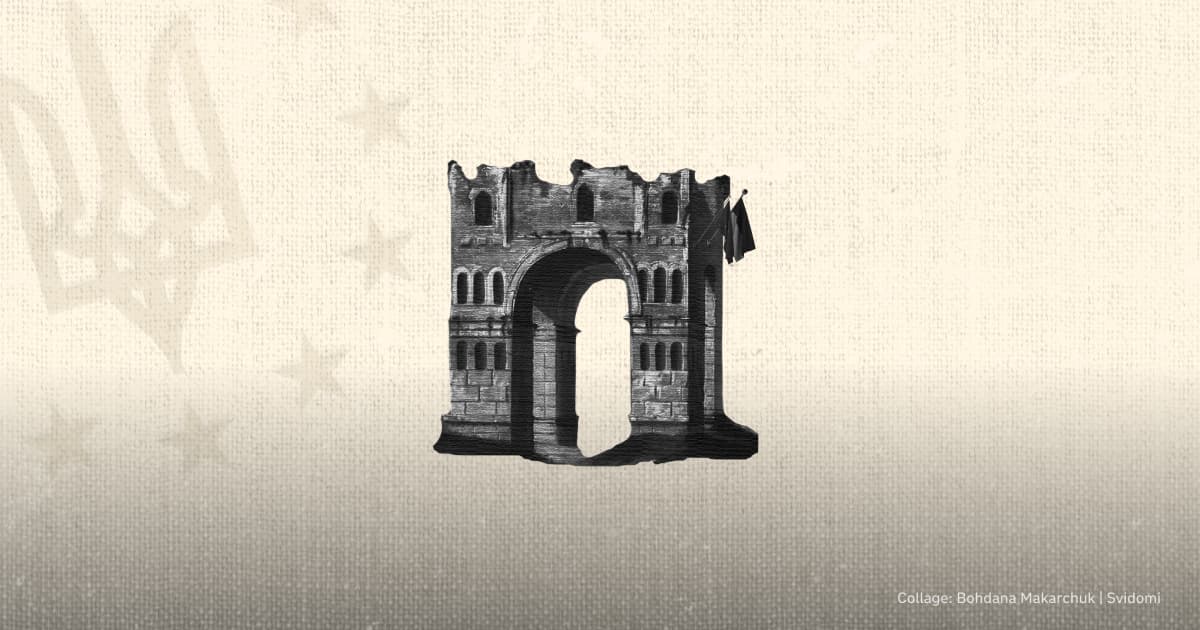
For a long time after regaining independence, Ukraine was at a crossroads: whether to become a democratic and independent country, part of the European Union and NATO, or to try to remain neutral while staying within Russia's sphere of influence. For almost 20 years, Ukraine attempted to maintain a multi-vector approach, but in 2013, the Revolution of Dignity changed everything. This event became a turning point in the history of independent Ukraine. First and foremost, it forced Ukrainians to re-evaluate the foundations of their state.
In the ten years after the start of the war with Russia, Ukraine tried to prove to the world that its independence and national security should bring peace to the world. However, the democratic countries of the EU and NATO became Ukraine's allies in this war only after Russia's full-scale invasion of Ukraine in February 2022.
On Ukraine's Independence Day, Svіdomi discusses the significance of Ukraine's independence for the world and how Russia's war against Ukraine has only underlined Ukraine's status as the gate to Europe.
Ukraine’s restoration of independence and the crossroads of choice
In 1991, Ukraine regained its independence. At that moment, our country was at a crossroads of political, economic and cultural choices. How should this new state be built? On what foundations and principles? With whom should we form alliances and partnerships?
One of the principles of the "new" Ukraine was the notion of being a "peaceful" and "neutral" country. In the 1990s, Ukraine actively disarmed, getting rid of its large army and strategic and nuclear weapons. This was mainly due to pressure from the United States and the Russian Federation, which had emerged from the ruins of the USSR. At the time, this seemed like the right thing to do, as the US was convincing the world that the Cold War (the ideological, economic, political and cultural confrontation between the USSR and the US) was over and that a new "peaceful" order awaited us. In 1994, Ukraine, the United Kingdom, the United States and Russia signed the Budapest Memorandum. This signalled the world that this "new" Ukraine was a peaceful and secure state.
In 1996, Ukraine adopted the Constitution. According to it, Ukraine did not allow the establishment of foreign military bases on its territory. This was a continuation of the "peace" policy. However, in 1997, Ukraine and Russia signed an agreement on the deployment of Russia's Black Sea Fleet in Crimea, strengthening Ukraine's ties with Russia.
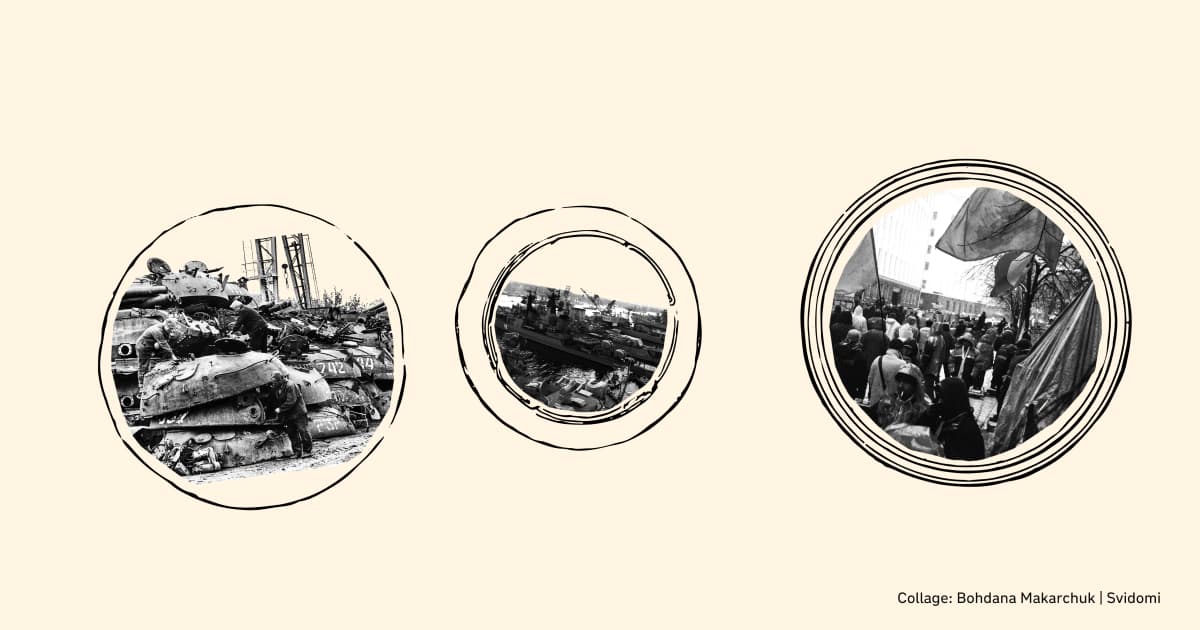
It is difficult to avoid a neighbour as large as Russia. Russian companies actively bought assets in Ukraine, and Russian films, books and music permeated Ukrainian culture. Ukraine bought gas from Russia, which Russian politicians actively manipulated, for example, by trading gas for arms. Russian politicians had a significant influence on Ukrainian politics. As a result, Ukraine remained at a crossroads, unable to make a clear choice for the country's development.
In 2004, following protests against Kuchma's policies, the assassination of Georgiy Gongadze, economic problems and the multi-vector approach to foreign policy, Ukrainians took to the streets to protest against the results of the second round of the presidential election. Viktor Yanukovych had won against Viktor Yushchenko, but most protesters suspected the election commissions of falsifying the results.
The protests quickly escalated into the Orange Revolution. People demanded the democratisation of politics, transparency and honesty in elections and processes, and economic reforms. However, the European path of development was not yet on the agenda. At that time, Ukrainians were only demanding freedom of choice within the country.
The Orange Revolution lasted until December 28, 2004. During this period, the Supreme Court of Ukraine ruled that the second round of the presidential election should be held again. At the same time, the Verkhovna Rada passed a package of laws changing the composition of the Central Election Commission, reducing the powers of the president and increasing the powers of parliament. This was an attempt to rebalance the country's executive and legislative branches.
Vitalii Skalskyi, a candidate of historical sciences and a researcher at the National Academy of Sciences of Ukraine, compares Ukraine's political steps to a zigzag and believes that Ukraine has not yet made a final choice because of its tendency towards multi-vectorism in politics, which has been present since the restoration of independence.
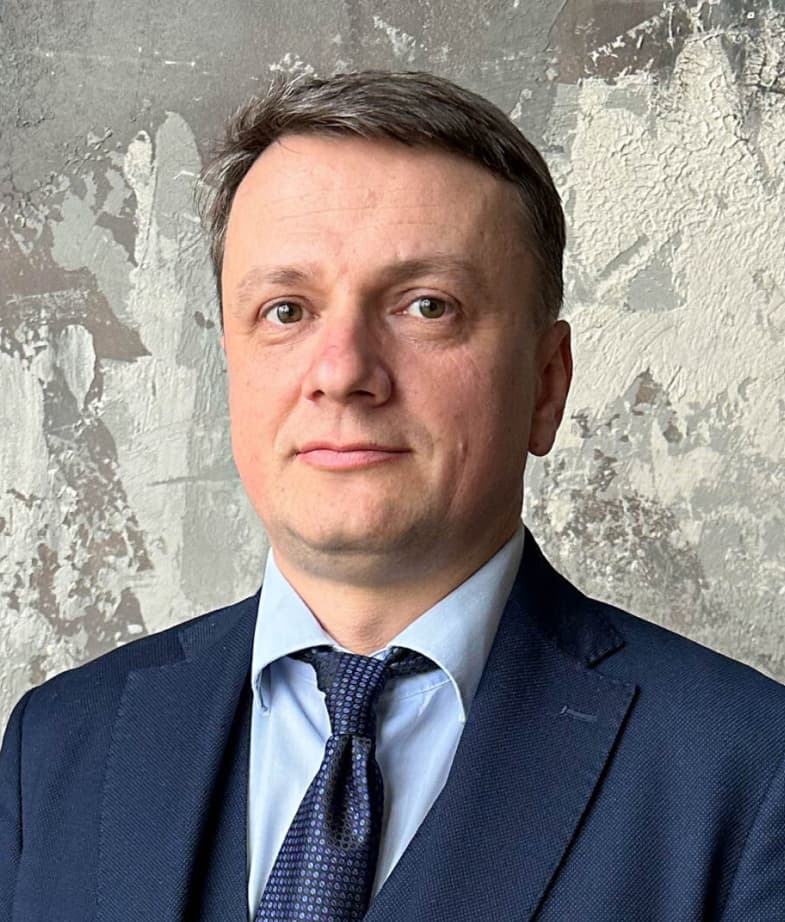
"It is unlikely that such a choice is possible in principle. History shows that our life is a constant choice. In 2004, it seemed that Ukraine had finally chosen the European path and would not deviate from it. But that was just bravado. A year and a half later, our society radically turned in the opposite direction. And then we faltered again. We have always made these zigzag leaps in our choices. So we cannot say that we are definitively in a notional Europe, but at the same time, we should not despair that we cannot make up our minds. This dichotomy is inherent in most nations on this planet,"
he explains.
Viktor Yushchenko tried to steer Ukraine on a pro-European, pro-Western course. The culmination of his efforts to steer Ukraine towards NATO and the EU came at the NATO Bucharest Summit in 2008. Although Ukraine was not given a Membership Action Plan, the Alliance welcomed "Ukraine's Euro-Atlantic aspirations for NATO membership. We agreed that these countries (Georgia and Ukraine) will become members of NATO."
Vitalii Skalskyi recalls that in 2008, Ukrainians protested against the Membership Action Plan and Ukraine's NATO membership. Viktor Yanukovych's opposition party, the Party of Regions, organised the protests.
"It was Russian influence and Russian money. But the Ukrainians were holding rallies against NATO. They were afraid of NATO membership; they did not want it," he says, recalling the mood in Ukrainian society.
Just five years later, disillusioned with Viktor Yushchenko's policies, Ukrainians voted for his ideological opponent, Viktor Yanukovych, in the 2010 presidential elections. Ukrainians were ready to give power to one person, tired of the infighting within the "orange" team between protest leaders Viktor Yushchenko and Yulia Tymoshenko over the previous five years.
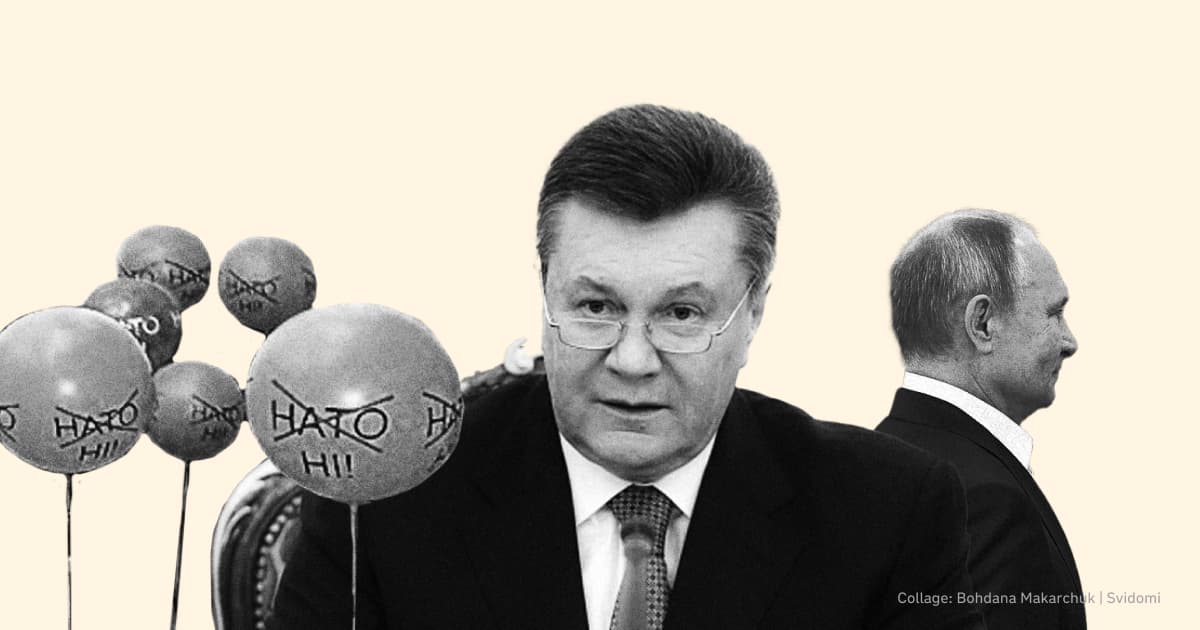
At the time, society wanted stability, an understanding of processes and a "strong hand". Yanukovych and his political strategists actively promoted his image as a "manager" who would fix everything in the country. But it turned out that Ukrainians had chosen a pro-Russian course.
Viktor Yanukovych's presidency ended in war. If in 2008, Ukrainians protested against NATO, albeit under Russian influence, in 2013, they took to the streets to protest Yanukovych's refusal to sign the Association Agreement with the European Union. The rallies, initially called Euromaidan, quickly turned into the Revolution of Dignity — full-scale protests in all Ukrainian cities for democracy, rights, freedoms and the right to choose freely.
This time, the European choice was not on the sidelines, as it had been in 2004, but at the heart of the protests. Ukrainians hoped for integration with the European Union for economic and political reasons. The European Union guarantees the full expression of rights and freedoms to its member states and citizens. In 2013, it became clear that Ukraine's neutral status and the crossroads at which it found itself led to fluctuations in the country's policies and direction. It became clear that one person could not guarantee stability. A foundation of political, economic and cultural principles was needed to build a strong democratic country.
In 2014, in response to the events of Euromaidan and its unwillingness to let Ukraine out of its influence, Russia occupied Crimea and parts of the Luhansk and Donetsk regions and started a war against Ukraine.
Russia's war against Ukraine and why its impact on the global order remained overlooked
The Russian Federation has interfered in Ukraine's internal affairs since the restoration of its independence. Russia provoked separatist sentiment in Crimea as early as the 1990s. Russian President Boris Yeltsin helped the United States pressure Ukraine into joining the Nuclear Non-Proliferation Treaty 1994.
The war that Russia launched against Ukraine in 2014 demonstrated once again that Russia is a threat not only to Ukraine but to other countries as well. The occupation of Crimea strengthened Russia's position in the Black Sea, a region bordered by NATO members such as Romania, Bulgaria and Türkiye.
Other countries had a lukewarm response to Russia’s aggression. The European Union, the United States and other nations imposed personal sanctions on Russian officials such as Vladislav Surkov, Sergey Aksyonov and Dmitry Rogozin. Sanctions were also imposed on Viktor Yanukovych, who fled to Rostov, Russia, in February 2014.
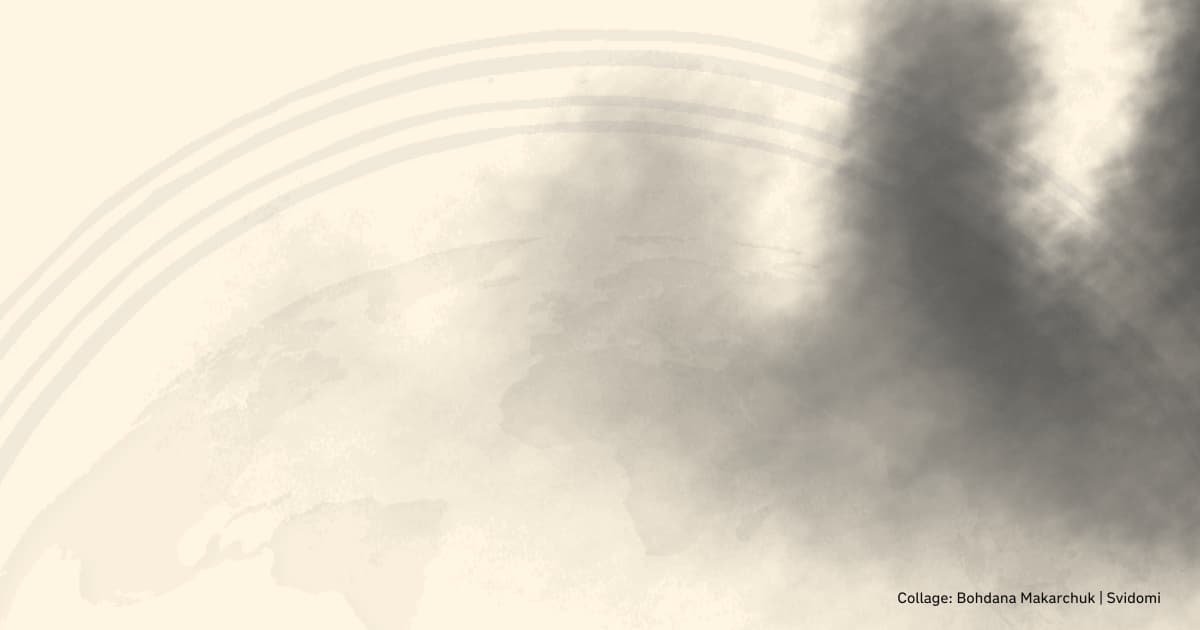
The UN General Assembly adopted a resolution calling on member states not to recognise Crimea as part of Russia. By occupying Crimea, Russia violated the UN Charter, in particular, the principle of non-interference in the internal affairs of another independent country. However, this was not enough to persuade foreign states to commit resources to help Ukraine in the war.
Ukraine's aspirations to join the EU and NATO — the main alliances of democratic countries — were met with little enthusiasm. In 2014, Ukraine and the EU signed an Association Agreement, which entered into force in 2017. Negotiations for full membership continued.
Instead of providing support, France and Germany initiated negotiations between Russia and Ukraine in the Normandy Format. One of the outcomes of this format was the Minsk agreements, initially aimed at the cessation of hostilities in the Donetsk and Luhansk regions and the possible reintegration of the so-called "DNR" and "LNR".
The Minsk agreements were based on a compromise between Ukraine, the illegal armed groups "DNR" and "LNR" and Russia. In reality, however, it was an attempt by Russia to limit Ukraine's sovereignty in a legalised way through manipulative and coercive diplomacy. Russia sought to force Ukraine to "federalise" its political system, with the aim of creating pro-Moscow regimes in these regions that, once reintegrated into Ukraine, would allow Russia to control its neighbour from within.
The EU, the US, and other countries around the world supported the implementation of the Minsk Agreements and insisted on their enforcement in the end. One example was the Steinmeier formula introduced by former German Foreign Minister Frank-Walter Steinmeier. He proposed that local elections be held in accordance with the Ukrainian constitution, and if the OSCE confirmed their democratic nature, the law on special self-government in certain areas of the Donetsk and Luhansk regions would come into force on a permanent basis. This should coincide with the implementation of the law on troop withdrawal and Ukraine's control of its eastern border.
Russia violated the Minsk agreements in February 2022 when it "annexed" the so-called "DNR" and "LNR" and then launched a full-scale invasion of Ukraine.
Only then did other countries around the world — mainly EU countries, the US, the UK, Canada, Japan, Australia and others — realise how dangerous Russia was. Appeasement had not worked. Despite personal sanctions, Europe maintained trade relations with Russia. Germany was preparing to launch the Nord Stream 2 gas pipeline, US presidents Donald Trump and Joe Biden met with Putin, and Russia was even allowed to host the 2018 World Cup.
Vitalii Skalskyi notes that several factors influenced the delayed reaction of Ukraine's partners to Russia's policy. First, there is the Russian factor.
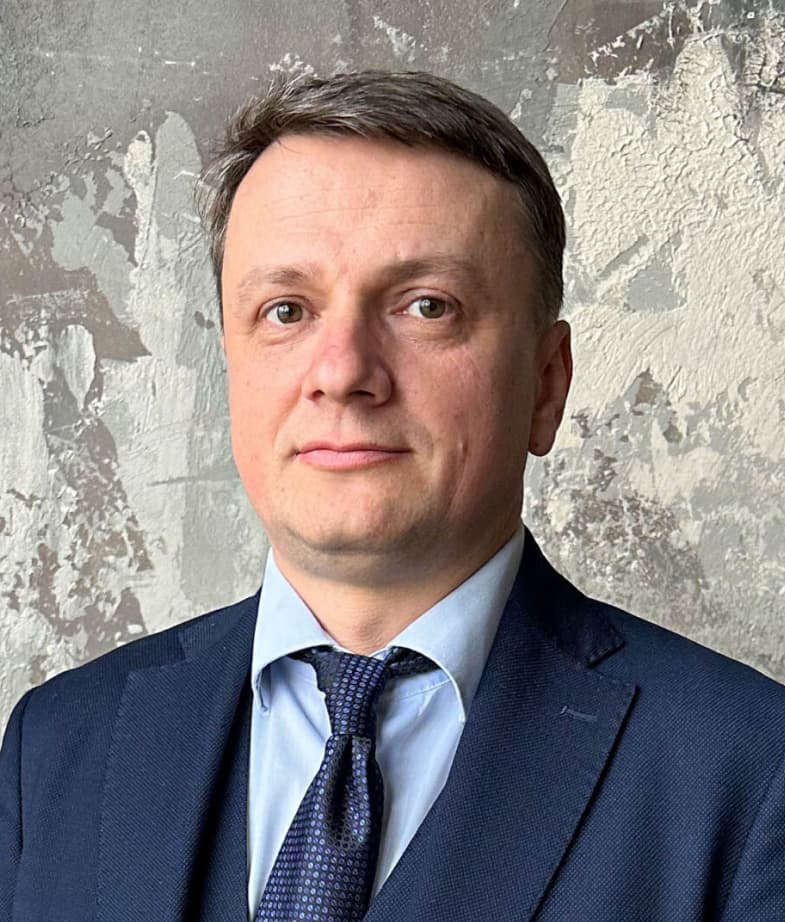
"The differences between the Estonian, Lithuanian, Latvian and Russian languages are obvious. There are also religious and cultural differences. However, these differences have not been noticed by Western countries between Russia, Ukraine, and Belarus. We remember when the Soviet Union was collapsing, and leaders of countries like Margaret Thatcher and George Bush Sr came to Kyiv, urging the Ukrainian SSR leadership not to declare independence and to preserve the Union. Because it was easier that way, you can add nuclear weapons to that. It was easier for the Western world to negotiate with one nuclear state, however weak than with several. That's why we were overlooked."
The second reason is that Ukraine did not assert itself in the world for a long time.
"The nation took a long time to define itself, to establish its identity. We paid little attention to ensuring that encyclopaedias, such as the British one, had articles about Ukraine that our artists were recognised as Ukrainian, not Russian or Polish. We told the world about ourselves in Ukrainian, English, and other international languages."
The EU decided to give Ukraine candidate status for EU membership only after Russia's full-scale invasion of Ukraine and to open membership negotiations with Ukraine in 2024. NATO, while publicly stating that "Ukraine will undoubtedly become part of NATO", still lacks clarity on how and under what conditions Ukraine will be admitted to the Alliance.
Ukraine as the modern gate to Europe
Russia's full-scale invasion of Ukraine has shaken the world order. Russia is forging links with Iran, which is supplying it with weapons for the war in Ukraine. North Korea is also supplying Russia with weapons, and the two countries are growing closer. China is helping Russia evade sanctions, providing components for its military industry and taking over the Russian market. Publicly, China avoids addressing the issue of financing Russia through secondary sanctions.
Russia is actively forming an "anti-Western coalition" with other countries, often dictatorships such as Syria, Afghanistan and Iran. Russia tries to destabilise the political situation in democratic countries, especially in Europe, by influencing radical politicians and parties through its organisations and even through a network of agents abroad. In Africa, Russia is committing crimes against humanity through its private military companies such as Wagner PMC, particularly in countries such as Mali, the Central African Republic and Niger. Russia then exploits the economies and natural resources of these countries. However, Russia publicly claims to be "protecting" these countries from their former colonisers, such as France, the United Kingdom and the United States.
Ukraine, which is defending its citizens and its territory, is indeed appearing as a kind of "gate" for democratic countries against Russia, which has turned into a fully totalitarian state. The Ukrainian government is actively promoting the position that the European Union, the US, and Canada can and should support the country by providing weapons and that Ukraine will win this war on its own.
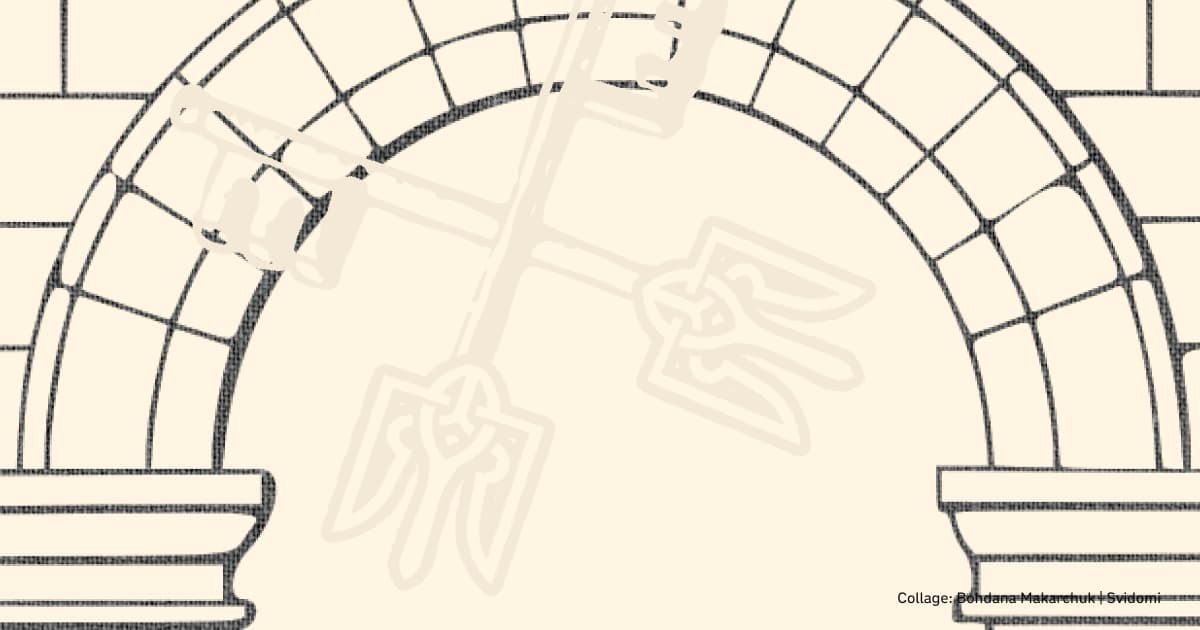
For European countries, this is not the first time that a country has become a "buffer zone" to ensure stability and security in Europe. Poland played this role in the interwar period (between the First and Second World Wars).
Vitalii Skalskyi, a candidate in historical sciences and research fellow at the National Academy of Sciences of Ukraine, explains how this happened.
"Poland was supposed to be a buffer between Germany and Soviet Russia, preventing them from starting a new war or forming a bloc and fighting against the rest of the world. That is what happened. In 1939, these countries partitioned Poland. According to the reasoning of the European countries at that time, Poland did not save the world but became a victim."
In 2014, when Russia's war against Ukraine looked more like a hybrid conflict, other countries perceived it as a local conflict. They were ready for Ukraine to play the victim role, says Vitalii Skalskyi.
"At the time, the world supported territorial integrity. Countries imposed sanctions on Russia. But the world was not ready — Europe was not ready — to give up Russian oil and gas. And we weren't ready either — we didn't close our borders and continued to trade with Russia," says Skalskyi.
So, when Russia started threatening other countries directly, they realised the importance of supporting Ukraine. The key is for EU and NATO countries to understand that their security is not guaranteed by Ukraine as a victim but by Ukraine as an independent country. US Vice President and presidential candidate Kamala Harris said at the peace summit in Switzerland in June 2024, "America supports Ukraine not out of charity, but because it is in our strategic interest". So, the actions of Ukraine's partners must match these words.
Ukraine's victory in its war with Russia could also become the success story that democratic countries and alliances seek to demonstrate the superiority of their economies and political systems.
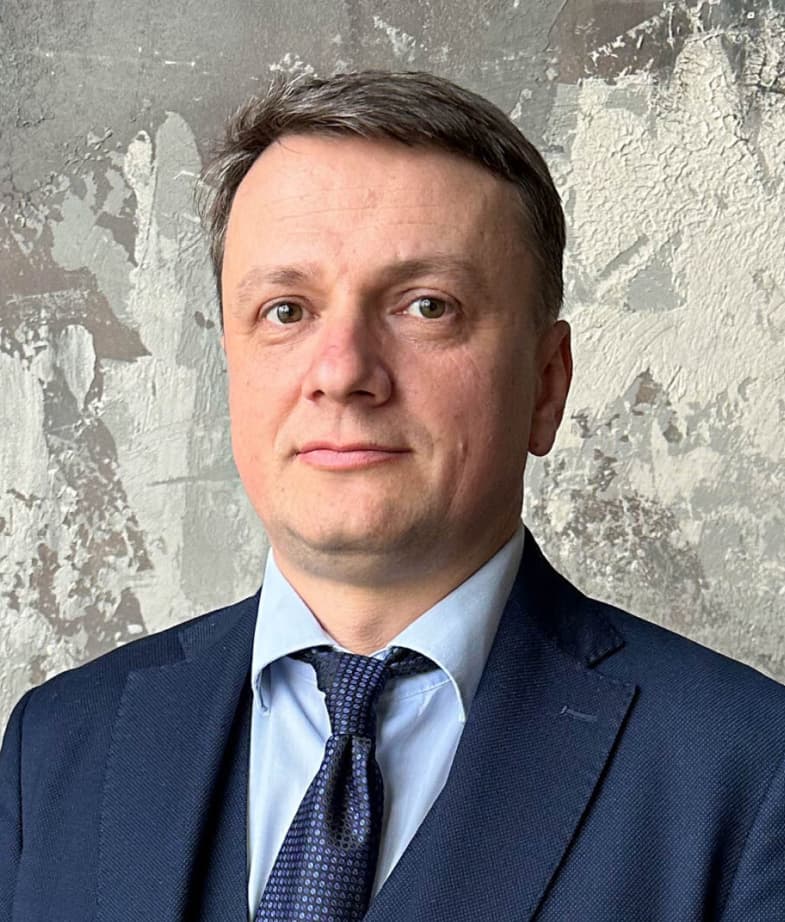
"The world order is constantly changing, but Ukraine has already secured its place in it," says Vitaliy Skalsky. "After our war, there will be other conflicts in the world, possibly even within Russia itself after its defeat. That is why we need to rebuild our economy, become a model and show how to overcome crises. When people start writing 'How Ukraine succeeded', I will find such a role for Ukraine in the political future very attractive".


